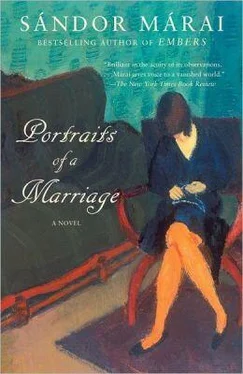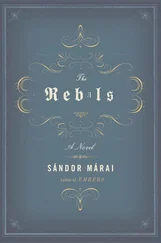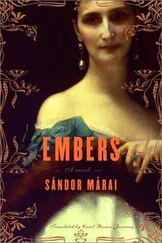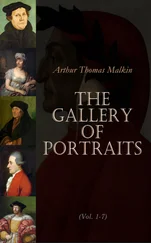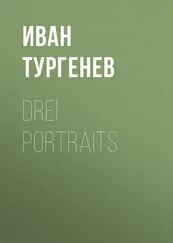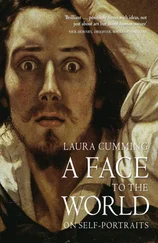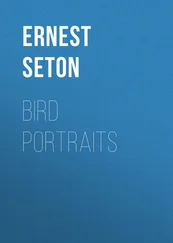I wouldn’t let go of him, would not let his soul escape for a second. I clung to him with the child. I silently blackmailed him with my emotional needs. Can these powers bind human beings? … Yes, they can; they are the only power. My every moment was dedicated to the child, but only because I knew that while there was a child my husband was mine and only mine. It is the sin God can’t forgive. You can’t make someone love you, nor can you make yourself love them. Nevertheless you try to impose your will; you strain every muscle and nerve to love. It’s the only way, you say? … Well, it was the way I loved him.
We lived off the child and fought each other. Our wars were fought not with words but with smiles, conversation, and temper. Then one day it happened. I just grew tired and my energy gave out. It was as if my feet and hands had gone to sleep. Because he wasn’t the only one who gave all his energy to his work: I did too.
I tired myself out, in the way people do when they are going to be ill. This was in early fall, many years ago. It was a mild, sweet fall. The child had just had his second birthday and was beginning to be really interesting, an utterly delightful, heartstring-tugging, proper character, a somebody. One evening we were sitting in the garden. The child had been put to bed.
“How about going to Merano for six weeks?” my husband suggested.
Two years earlier it was I who had asked if we could visit Merano in the early fall. I’m superstitious; I like a bit of quackery and believed in the grape cure diet. He didn’t come with me the first time, making some excuse to stay behind. I knew he didn’t enjoy traveling with me, because he feared the closeness implied by a journey, feared the days when two people are thrown entirely on each other’s resources in a hotel room in a strange place.
At home the house, our work, our friends, and the business of our lives came between us. This time he wanted to reward me the best he could.
We went to Merano. My mother-in-law moved into our house while we were away, as was the custom. She looked after the child.
It was a strange journey. It was a honeymoon, a valediction, a process of getting acquainted, a running of the gauntlet: it was all of these at once. He tried to bare his soul for me. Because you can be certain of one thing, my dear: that it was never boring in this man’s company. I suffered much, it almost killed me, occasionally I was almost a complete blank, occasionally I felt reborn when with him, but not for one moment was I bored. That’s just to set the record straight. So, one day we set off to Merano.
Fall was golden, lush, operatic, glorious. We traveled by car. The trees were hung with yellow fruit. The air was richly scented and ripe; the whole world was a garden at the point of turning. There were people in the streets, rich people, people without a care, swarming everywhere, swimming. Big, fat-bellied wasps were humming in the heat, heavy with light. There were Americans just getting drunk on the sun; there were French women bright as dragonflies and more cautious English visitors. The world had not been boarded over yet; for a moment everything — Europe, life itself — was bathed in intense light. But there was a touch of panic too, a sense of having to enjoy everything at once before it all went. People could feel fate working against them. We were lodging in the best hotel, went to concerts, heard fine music, had two adjoining rooms with a view of the mountains.
What were these six weeks about? What were we waiting for? Were we hoping for something? We seemed to be living in silence. My husband had brought books to read: he had perfect pitch as far as language was concerned and, like a great musician, could tell the false note from the true. He was like Lázár in this respect. We’d sit on the balcony at twilight and I’d read to him: French poems, English novels, heavy German prose. And Goethe and some scenes from Hauptmann’s Florian Geyer . He loved that play. He had seen it on stage once, in Berlin, and had never forgotten it. He also loved Büchner’s Danton’s Death . And Hamlet , and Richard III . I was obliged to read him verses by the great Hungarian poet János Arany, from his late Autumn Crocuses cycle. Then we’d dress, have supper in one of the best restaurants, drink sweet Italian wine and eat sea crab.
In some ways we were living like nouveaux riches, like people who want to make up for everything they have ever lacked, to enjoy it all, and all at once. People that listen to Beethoven while chewing on a capon and slurping French Champagne in time to the music. But it was also like saying good-bye to something. Those years, the last years before the war, were drenched in this peculiar atmosphere. It was like saying good-bye without quite knowing it. My husband said precisely that: something about Europe. I said nothing. It was not Europe I was leaving. Can we, just the two of us, as women, own up to the fact that, concepts such as “Europe” have little to do with us? What I knew deep in my heart was that I lacked the strength to cut myself off from something more important. I was almost choking with helplessness.
One night we were sitting on the balcony. There were grapes in a glass bowl, and big yellow apples. It was apple-gathering time in Merano. The air was so sweet, so full of the smell of apples, it was as if someone had left the lid off an enormous jar of preserves. Below us a French palm-court orchestra was playing melodies from an old Italian opera. My husband had wine brought to the table; the wine — Lacrima Christi — was dark and stood in a crystal jug. There was sweetness in everything, even in the music, something a little overripe, a touch sickening. My husband felt it too and declared:
“Tomorrow we go home.”
“Yes,” I said. “Let’s be on our way.”
Suddenly he spoke up in that melancholy, deep voice of his that always touched me. It was like a solemn instrument of some primitive tribe:
“Tell me, Ilonka, what do you think we should do after this?” he asked.
Did I understand what he meant? He was talking about us, our life together. It was a starry night. I looked at the stars, the autumnal stars in that Italian sky, and shuddered. I felt the moment had come when we had to speak the truth. My hands and feet were cold but my palms were sweating with excitement.
“I don’t know, I really don’t know. I couldn’t bear to leave you. I can’t imagine life without you,” I said.
“I know, it’s very difficult,” he calmly replied. “I wouldn’t want it, either. Maybe it’s not the right time yet. Maybe there will never be a right time. But there’s something in our life together, just as there is in this holiday, as in everything in our mutual lives, that is shameful and unbefitting. Is it that we daren’t tell each other what that is?”
At last he had said it. I closed my eyes and felt dizzy. I stayed silent like that, my eyes closed.
“So tell me at last, what is it that is driving us apart?” I asked.
For a long time he said nothing, simply thought. He put out his cigarette and lit another. He was smoking strong English cigarettes at that time, the smoke of which always made me feel a little giddy. But that smell was part of him too, like the smell of hay in his linen cupboard, because he loved to scent his clothes with a bitter oil smelling of hay. What extraordinary details constitute our sense of a person!
“I don’t feel a great need to be loved,” he finally said.
“That’s impossible,” I said, grinding my teeth. “You are a human being. You have an absolute need to be loved.”
“It is precisely this that women don’t believe, cannot know, and do not understand,” he said as if addressing the stars. “That there exists a type of man who has no need of love. He gets on fine without it.”
Читать дальше
